Dodge Torque Arm Speed Reducers Straight Bore & Taper Bushed TDT615-725 Owner's manual
- Type
- Owner's manual

1
WARNING: To ensure that drive is not unexpectedly started,
turn off and lock out or tag power source before proceeding.
Failure to observe these precautions could result in bodily
injury.
INSTALLATION
1. Replace the plastic plug that protects the threaded hole
in the reducer housing with the eyebolt supplied with the
reducer.
2. Determine the running positions of the reducer. (See Fig. 1)
Note that the reducer is supplied with either 4 or 7 plugs; 4
around the sides for horizontal installations and 1 on each
face for vertical installations. These plugs must be arranged
relative to the running positions as follows:
Horizontal Installations - Install the magnetic drain plug
in the hole closest to the bottom of the reducer. Of the 3
remaining plugs on the sides of the reducer, the lowest one
is the minimum oil level plug.
Vertical Installations - Install the ller/ventilation plug in
the hole provided in the top face of the reducer housing. Use
the hole in the bottom face for the magnetic drain plug. Of
the 5 remaining holes on the sides of the reducer, use a plug
in the upper housing half for the minimum oil level plug.
B
L
D
P
Position “A” Position “B” Position “C”
HORIZONTAL APPLICATIONS
L
D
B
P
Position “D”
B
P
D
LL
P
D
B
VERTICAL APPLICATIONS
D
L
B
P
Position “F”Position “E”
B
L
D
P
B: Breather; D: Drain; L: Oil Level Plug; P: Plug
Figure 1 - Mounting Positions
WARNING: Because of the possible danger to person(s) or
property from accidents which may result from the improper
use of products, it is important that correct procedures be
followed: Products must be used in accordance with the
engineering information specified in the catalog. Proper
installation, maintenance and operation procedures must
be observed. The instructions in the instruction manuals
must be followed. Inspections should be made as necessary
to assure safe operation under prevailing conditions. Proper
guards and other suitable safety devices or procedures as
may be desirable or as may be specified in safety codes
should be provided, and are neither provided by Baldor
Electric Company nor are the responsibility of Baldor
Electric Company. This unit and its associated equipment
must be installed, adjusted and maintained by qualified
personnel who are familiar with the construction and
operation of all equipment in the system and the potential
hazards involved. When risk to persons or property may be
involved, a holding device must be an integral part of the
driven equipment beyond the speed reducer output shaft.
Parts Replacement Manual for TORQUE-ARM
®
Speed Reducers
Straight Bore & Taper Bushed
SIZES: TDT615 - TDT625 and TDT715 - TDT725
These instructions must be read thoroughly before installing or operating this product.
The running position of the reducer in a horizontal application
is not limited to the four positions shown in Figure 1.
However, if running position is over 20° either way from
sketches, the oil level plug cannot be safely used to check
the oil level, unless during the checking the torque arm is
disconnected and the reducer is swung to within 20° of the
positions shown in Figure 1. Because of the many possible
positions of the reducer, it may be necessary or desirable to
make special adaptations using the lubrication tting holes
furnished along with other standard pipe ttings, stand
pipes and oil level gauges as required.
3. Mount reducer on driven shaft as follows:
For Straight Bore: Mount reducer on driven shaft as close
to bearing as practical. If bushings are used, assemble
bushings in reducer rst. A set of bushings for one reducer
consists of one keyseated bushing and one plain bushing.
Extra length setscrews are furnished with the reducer. Driven
shaft should extend through full length of speed reducer.
Tighten both setscrews in each collar.
For Taper Bushed: Mount reducer on driven shaft per
instruction sheet packed with tapered bushings.
4. Install sheave on input shaft as close to reducer as practical.
(See Fig. 2)
KEEP
CLOSE
INPUT
SHAFT
DRIVEN
SHAFT
KEEP
CLOSE
Figure 2 - Sheave Installation
5. Install motor and V-belt drive so belt pull will approximately
be at right angles to the center line between driven and input
shaft. (See Fig. 3) This will permit tightening the V-belt drive
with the torque arm.
RIGHT ANGLE
OR MAY VARY
30˚ EITHER WAY
V-BELT
DRIVE
V-BELT DRIVE MAY
BE LOCATED TO THE
RIGHT IF DESIRED
Figure 3 - Installation of Motor and V-Belt Drive

2
6. Install torque arm and adaptor plates using the long reducer
bolts. The bolts may be shifted to any of the holes on the
input end of the reducer.
7. Install torque arm fulcrum on a rigid support so that the
torque arm will be approximately at right angles to the center
line through the driven shaft and the torque arm anchor
screw. (See Fig. 4) Make sure that there is sufcient take-
up in the turnbuckle for belt tension adjustment when using
V-belt drive.
RIGHT ANGLE
OR MAY VARY
30° EITHER WAY
TORQUE ARM
AND
BELT TAKE-UP
TORQUE ARM MAY
BE LOCATED TO THE
RIGHT IF DESIRED
Figure 4 -
LUBRICATION
NOTE: Because reducer is shipped without oil, it is necessary
to add the proper amount of oil before running. Use a high
grade petroleum base, rust and oxidation inhibited (R &
0) gear oil - see tables. Follow instructions on reducer
nameplate, warning tags, and in the installation manual.
Under average industrial operating conditions, the lubricant
should be changed every 2500 hours of operation or every 6
months, whichever occurs rst. Drain reducer and ush with
kerosene, clean magnetic drain plug and rell to proper level with
new lubricant.
CAUTION: Too much oil will cause overheating and too little
will result in gear failure. Check oil level regularly.
Under extreme operating conditions, such as rapid rise and fall
of temperature, dust, dirt, chemical particles, chemical fumes, or
oil sump temperatures above 200° F, the oil should be changed
every 1 to 3 months depending on severity of conditions.
Table 1 - Oil Volumes
REDUCER
SIZE
Volume of Oil Required to Fill Reducer to Oil Level Plug
① Position A ① Position B ① Position C ① Position D ① Position E ① Position F
Fluid
Ounces
(Approx)
Quarts
②
(Approx)
Liters
(Approx)
Fluid
Ounces
(Approx)
Quarts
②
(Approx)
Liters
(Approx)
Fluid
Ounces
(Approx)
Quarts
②
(Approx)
Liters
(Approx)
Fluid
Ounces
(Approx)
Quarts
②
(Approx)
Liters
(Approx)
Fluid
Ounces
(Approx)
Quarts
②
(Approx)
Liters
(Approx)
Fluid
Ounces
(Approx)
Quarts
②
(Approx)
Liters
(Approx)
TDT615
136 4-1/4 4.0 160 5 4.7 136 4-1/4 4.0 160 5 4.7 276 8-5/8 8.2 292 9-1/8 8.6
TDT625
TDT715
208 6-1/2 6.1 256 8 7.6 232 7-1/4 6.9 296 9-1/4 8.7 492 15-3/8 14.6 524 16-3/8 15.5
TDT725
① Refer to Fig. 1 on page 2 for mounting positions.
② U. S. Measure: 1 quart = 32 fluid ounces = .94646 liters.
NOTE: If reducer position is to vary from those shown in Figure 1 either more or less oil may be required. Consult factory.
Table 2 - Oil Recommendations for Average Operating Conditions
Ratio and
Output RPM
Room Temp.
º Fahrenheit
OIL VISCOSITY
S. A. E
Number
AGMA
Lubrication Number
ASTM
SUS @ 100º F.
Metric Equiv.
C Sf @ 37.8° C.
25:1 - Up to 45 RPM
15:1 - Up to 75 RPM
- 25° thru 60° 10W40 - - - - - - - - -
O° thru 100° 40 4 626 to 765 135 to 165
101° thru 180° 50 5 918 to 1122 198 to 242
25:1 - 46 RPM and Up
15:1 - 76 RPM and Up
- 25° thru 60° 10W30 - - - - - - - - -
O° thru 100° 30 3 417 to 510 90 to 110
101 ° thru 180° 40 4 626 to 765 135 to 165
NOTES:
Pour point of lubricant selected should be at least 10º F. lower than expected minimum ambient starting temperature.
Extreme pressure (EP) lubricants are not recommended for average operating conditions.
Special lubricants may be required for food and drug industry applications where contact with the product being manufactured may occur. Consult a lubrication manufacturer for
recommendations.
Do not use oils containing slippery additives such as graphite or molybdenum disulphide in the reducer when backstop is used. These additives will destroy sprag action.

3
⑤
⑥
⑦
②
③
④
①
Figure 5 - Motor Mount
NOTE: Belt Guard has been removed for photographic
purposes.
MOTOR MOUNTS
WARNING: Ensure that all guards are properly installed
before proceeding. Exercise extreme care to avoid
contacting rotating pats. Failure to observe this precaution
may result in bodily injury.
NOTE: Refer to photo for position of all parts before
installation.
1. Remove the two or three bolts required for mounting the TAM
Motor Mount from the reducer housing. Install the front and
rear supports (2) using the new reducer bolts (1) supplied with
the motor mount. Make sure support anges face output side
of reducer. Tighten bolts securely.
2. Mount bottom plate (3) on supports with bolts supplied. Insert
bolts (7) from top through slotted holes. Add atwasher,
lockwasher, and nut. Hand tighten.
3. Thread two nuts (6) on each threaded stud (5) leaving
approximately 1” of stud protruding at one end. Insert
threaded stud with 1” of threads through corner holes of
bottom plate, thread a hex nut (6) on the stud and tighten
securely.
4. Slide top plate (4) over the threaded stud, making sure center
handling hole is positioned opposite input side of reducer.
Thread a hex nut (6) on the studs and tighten securely.
5. Locate the proper position for the motor and bolt it to the top
plate. Tighten bolts securely.
6. Install motor sheave and reducer sheave as close to motor
and reducer housings as possible. Accurately align the motor
and reducer sheave by sliding bottom plate in relation to
supports. Tighten bolts (7) securely.
7. Install V-belts and tension belts by alternately adjusting nuts
(6) on the threaded studs (jackscrews). Make certain that
all bolts are securely tightened, the V-belt drive is properly
aligned and the belt guard is installed before operating the
drive.

4
REPLACEMENT OF PARTS
Using tools normally found in a maintenance department, a
Dodge Torque-Arm Speed Reducer can be disassembled and
reassembled by careful attention to the instructions following;
Cleanliness is very important to prevent the introduction of dirt
into the bearings and other parts of the reducer. A tank of clean
solvent, an arbor press and equipment for heating bearings and
gears should be available for shrinking these parts on shafts.
The oil seals are of the rubbing type and considerable care
should be exercised during disassembly and reassembly to avoid
damage to surfaces which the seals rub on.
ORDERING PARTS
When ordering parts for reducer specify reducer size number,
part name, part number and quantity.
It is strongly recommended that when a pinion or gear is replaced,
the mating gear or pinion also be replaced.
If the large gear on the output hub must be replaced, it is
recommended that an output hub assembly of a gear assembled
on a hub be ordered to insure undamaged surfaces on the output
hub where the oil seals rub. However if it is desired to use the old
output hub, press the gear and bearing off and carefully examine
the rubbing surface under the oil seal for possible scratching or
other damage resulting from the pressing operation. To prevent
oil leakage at the oil seals, the smooth surface of the output hub
must not be damaged.
If any parts must be pressed from a shaft or the output hub, this
should be done before ordering parts to make sure that none of
the bearings or other parts are damaged in removal.
Because old seals may be damaged in disassembly, it is advisable
to order replacements for these parts.
If replacing a bearing or a shaft, it is advisable to order a set
of shims for adjustment of bearings on the shaft assembly. If
replacing a housing, a set of shims should be ordered for each
shaft assembly because the adjustment of the bearings on each
shaft assembly is affected.
REMOVING REDUCER FROM SHAFT
STRAIGHT BORE
Loosen screws in both output hub collars. Remove the collar next
to end of shaft. This exposes three puller holes in output hub to
permit use of wheel puller. In removing reducer from shaft be
careful not to damage ends of hub.
TAPER BUSHED
1. Remove bushing screws.
2. Place the screws in the threaded holes provided in the
bushing anges. Tighten the screws alternately and evenly
until the bushings are free on the shaft. For ease of tightening
screws make sure screw threads and threaded holes in
bushing anges are clean.
3. Remove the outside bushing, the reducer and then the
inboard bushing.
DISASSEMBLY
1. Remove all bolts from housing. Remove back-up plates and
snap rings on the output hub on taper-bushed reducers.
Open housing evenly to prevent damage to parts inside.
2. Lift shaft, gear and bearing assemblies from housing.
3. Remove seals, seal carriers and bearing cups from housing.
REASSEMBLY
1. Output Hub Assembly: Heat gear to 325 to 350°F. to shrink
on output hub. Heat bearing cones to 270 to 290°F. to shrink
on hub.
2. Countershaft Assembly: Heat gear to 325 to 350°F. and
bearing cones to 270 to 290°F. to shrink on shaft.
3. Input Shaft Assembly: Heat bearing cones to 270 to 290°F.
to shrink on shaft.
4. Place a .010” shim on output hub seal carrier for right hand
half of housing (as viewed in drawing). Place a 1/8” diameter
bead on Dow Corning RTV732 sealant on the face around
the 1.0. of the shim (seal is to be between reducer housing
and shim).
Caution: If too much sealant is used it will run into
bearing and too little sealant will result in an ineffective
seal.
Install output hub seal carrier and countershaft bearing cover
in right hand housing half and tighten screws to recommended
torque in Table 1. Place bearing cups in right hand housing
half. Make certain the cups are properly seated in housing.
Place housing half on blocks to allow for protruding end of
output hub.
5. Mesh output hub and countershaft assembly together and
place in housing half. Place input shaft in position. Make sure
rollers are properly seated in bearing cups.
6. Clean housing ange surfaces on both halves, making sure
not to nick or scratch ange face. Place a new bead of
gasket replacer on ange face and spread evenly over entire
ange leaving no bare spots. Note: If reducer was originally
supplied with a housing gasket do not use gasket replacer.
Reorder gasket per part number given in parts list. Place
other housing half into position and tap with a soft hammer
(rawhide not a lead hammer) until housing bolts can be used
or draw housing halves together. Torque housing bolts per
torque values listed in Table 3.
Table 3 - Torque Values
Reducer
Size
Recommended Torque (lb.-ins.)
Housing
Bolts
Countershaft
Cover Screws
Output Hub Seal
Carrier Screws
Input Bearing
Cover Screws
TDT6 900 360 360 120
TDT7 1620 600 600 120
7. Place the output hub seal carrier in position without shims
and install two cap screws diametrically opposed. Torque
each screw to 25 lb.-in. Rotate the shaft to roll, in the
bearings and then torque each screw once to 50 lb.-in.,
do not retorque the screws. Turn shaft again to roll in the
bearings. With a feeler gauge, check the gap between carrier
and housing, clockwise from and next to each screw. To
determine required shim thickness, add the average of the
two feeler gauge readings to .013”. Remove the carrier and
install the required shims.
Note: Total shim thickness per carrier or cover should
not include more than .009” plastic shims. All other
shims should be metal and each plastic shim should be
inserted between two metal shims.
Place a 1/8” diameter bead of Dow Corning RTV732 sealant
on the face around the I.D. of the last shim and install output
hub carrier in reducer housing. Tighten carrier bolts to
recommended torque in Table 3. Output hub should have an
axial end play of .001” to .003”.
8. Adjust the countershaft bearings using the some method as
in step 7, except to determine shim thickness required add
the overage of the feeler gauge readings to .013” and the
axial end play should be .001” to .007”.

5
9. Again using the same procedure as in step 7, adjust the input
shaft bearings, except add the average of the feeler gauge
readings to 0.16” to determine required shim thickness and
the axial end play should be .002” to .008”.
10. Apply sealant to backstop cover gasket and install backstop
cover. Extreme care should be used in installing seals to
avoid damage due to contact with sharp edges of the keyseat
in the input shaft and holes in the output hub. This danger
of damage and consequent oil leakage can be decreased
by covering the keyseat and the holes with paper or tape
which can be removed after seals are in place. Chamfer or
burr housing bore if end of bore is sharp or rough. Fill cavity
between lips of seal with grease. Seals should be pressed or
tapped with a soft hammer evenly into place in the housing,
applying force only on the outer corner of the seals. A slight
oil leakage at the seal may be evident during initial running
in, but will disappear unless the seals have been damaged.
11. Install bushing back-up plate and snap rings on Taper
Bushed reducers.

6
PARTS FOR TDT6 and TDT7 STRAIGHT BORE & TAPER BUSHED SPEED REDUCERS
Tapered Bushed ReducerStraight Bore Reducer
16,19,20
22,24
62
82
32,33
68
60
64
70
76
59
32, 33
58
55, 54
28
32, 33
40
42
44, 45
30
114
116
25
118,
120, 122
112
38 39
34
56,57
46, 47
48
26
52
50
80, 81
66
77
78
12
18
94
96
98
102
100
104
106,
108, 110
Torque-Arm Assembly
Backstop Assembly
16, 19, 20
22, 24
62
82
32, 33
86, 88
84
66
77
78
72
80, 91
50
52
26
48
56, 57
46, 47
34
38, 39
112
118,
120, 122
116
25
114
30
44, 45
40
42
32, 33
28
54, 55
58
32, 33
59
76
74
64
60
90

7
Ref. Name of Part
No.
Req’d
TDT6 TDT7
Part No. Part No.
12 Backstop Assembly 1 246092 247260
①
16
18
19
HOUSING ASSEMBLY ②
③ Air Vent
③ Housing Bolt
③ Adapter Housing Bolt
③ Washer
1
1
6
2
2
246202
245237
411466
411468
419096
247191
390061
411498
411499
419082
20
22
24
①
25
26
③ Lockwasher
③ Hex Nut
③ Dowel Pin
③ Pipe Plug
③ Magnetic Plug
③ Countershaft Brg. Cover (Backstop Side)
8
8
2
2
1
1
419013
407091
420112
430033
430062
244224
419016
407095
420128
430035
430064
355060
28
30 ⑨
Input Shaft Seal Carrier
Input Shaft Bearing Shim Pack
.002” Thick
.005” Thick
.010” Thick
.025” Thick
1
2 ④
⑤
⑤
⑤
⑤
246184
391164
427478
427480
427480
427481
247320
390420
427578
427584
427604
427618
32
33
34
38
39
Carrier and Cover Screws
Lockwasher
Backstop Cover
Backstop Cover Screw
Lockwasher
⑧
⑧
1
6
6
411408
419011
246221
411404
419009
411433
419012
247221
411402
419009
40 ⑨
41 ①
44 ⑨
45 ⑨
46 ⑨
47 ⑨
Input Shaft
with Pinion
Input Shaft Key
Input Shaft Brg.
(Input Side)
Input Shaft Brg.
(Backstop Side)
15:1 Ratio
25:1 Ratio
Cone
Cup
Cone
Cup
1
1
1
1
1
1
1
246290
246291
443113
390445
390687
390446
390687
247370
247371
443127
390375
390333
390437
390438
48
50 ⑨
52 ⑨
COUNTERSHAFT
ASSEMBLY ②
③ Countershaft with Pinion
③ First Reduction
Gear
③ Key
15:1 Ratio
25:1 Ratio
15:1 Ratio
25:1 Ratio
1
1
1
1
1
2
391171
391186
246294
246292
246293
245218
391196
391197
247002
247008
247005
247218
54 ⑨
55 ⑨
56 ⑨
57 ⑨
Countershaft Brg.
(Input Side)
Countershaft Brg.
(Backstop Side)
Cone
Cup
Cone
Cup
1
1
1
1
391910
391911
391912
391913
391960
391961
391960
391961
58 Countershaft Brg. Cover (Input Side) 1 246185 247194
59 ⑨
Countershaft Brg. Shim Pack
.002” Thick
.005” Thick
.010” Thick
.025” Thick
2 ④
⑤
⑤
⑤
⑤
391165
427474
427475
427476
427477
390429
427690
427691
427692
427693
OUTPUT HUB
ASSEMBLY ②
Straight Bore
Taper Bushed
1
1
390988
390935
390990
390941
60 ⑨ ③ Output Hub
Straight Bore
Taper Bushed
1
1
246338
246269
247338
272137
62 ⑨
64 ⑨
66 ⑨
③ Output Gear
③ Output Gear Key
③ Output Hub Snap Ring
1
2
1
246295
245217
421033
247215
245217
421038
68
70
72
74
Output Hub Collar ⑥
Collar Screw ⑥
Bushing Back-Up Plate ⑦
Retaining Ring ⑦
2
4
2
2
246309
400154
246270
421055
247309
400190
272138
421099
76
77
Output Hub Seal Carrier
(Input Side)
Output Hub Seal Carrier
(Backstop Side)
1
1
246187
246186
247315
247315
80 ⑨
81 ⑨
Output Hub
Bearing
Cone
Cup
2
2
391935
391936
391962
390666
82 ⑨
Output Hub Bearing Shim Pack
.002” Thick
.005” Thick
.010” Thick
.025” Thick
2 ④
⑤
⑤
⑤
⑤
391187
427470
427471
427472
427473
390444
427525
427527
427528
427558
36 ⑨
42 ⑨
78 ⑨
① ⑨
SEAL KIT ② ⑨
③ Backstop Cover Gasket
③ Input Shaft Seal
③ Output Hub Seal
③ Housing Gasket (for reducers supplied with
gaskets only)
1
1
1
2
1
246340
246220
242202
246302
246219
247345
246220
242202
247302
247219
Ref. Name of Part
No.
Req’d
TDT6 TDT7
Part No. Part No.
① ⑩ RTV Sealant, Tube
1 465044 465044
84
BUSHING
ASSEMBLY ②
1-15/16” Bore
2” Bore
2-3/16” Bore
2-1/4” Bore
2-7/16” Bore
2-1/2” Bore
2-11/16” Bore
2-13/16” Bore
2-7/8” Bore
2-15/16” Bore
3” Bore
3-3/16” Bore
3-7/16” Bore
3-15/16” Bore
1
1
1
1
1
1
1
1
1
1
1
1
1
1
246259
246260
246261
246262
246263
246264
246265
. . . .
246266
246267
246283
. . . .
246268
. . . .
. . . .
. . . .
. . . .
. . . .
272125
272149
272147
272130
272131
272132
272133
272134
272135
272136
86
88
③ Bushing Screw
③ Lockwasher
6
6
411435
419012
411456
419013
90
③ Key,
Bushing
to Shaft
1-15/16” Bore
2” Bore
2-3/16” Bore
2-1/4” Bore
2-7/16” Bore
2-1/2” Bore
2-11/16” Bore
2-13/16” Bore
2-7/8” Bore
2-15/16” Bore
3” Bore
3-3/16” Bore
3-7/16” Bore
3-15/16” Bore
1
1
1
1
1
1
1
1
1
1
1
1
1
1
443211
443211
443211
443211
443214
443214
443238
. . . .
443236
443237
443252
. . . .
443213
. . . .
. . . .
. . . .
. . . .
. . . .
443248
443248
443248
443199
443199
443199
443216
443235
443217
443218
①
③ Key,
Bushing to
Output Hub
1-15/16” thru 2-1/2” Bore
2-7/8” thru 3” Bore
1
1
443212
. . . .
. . . .
443198
94
96
98
100
TORQUE-ARM ASSEMBLY ②
③ Rod End
③ Hex Nut
③ Turnbuckle
③ Extension
1
1
1
1
1
246097
245245
407097
245246
245247
247098
247239
407099
247246
247240
102
104
106
108
110
③ L. H. Hex Nut
③ Fulcrum
③ Fulcrum Screw
③ Lockwasher
③ Hex Nut
1
1
1
1
1
407246
247248
411489
419014
407093
407248
247248
411489
419014
407093
112
114
116
118
120
122
ADAPTER ASSEMBLY ②
③ R. H. Adapter Plate
③ L. H. Adapter Plate
③ Adapter Bushing
③ Adapter Bolt
③ Lockwasher
③ Hex Nut
1
1
1
1
1
1
1
259156
246242
246241
245243
411460
419013
407091
259157
247242
247241
247244
411485
419014
407093
①
Not shown on drawing
②
Includes parts listed immediately below. TDT6 housing assembly also includes
a two-piece housing. Bushing Assemblies include 2 bushings.
③
Parts marked make up the assemblies under which they are listed.
④
One set consists of one each of the shims listed immediately below.
⑤
If replacing a bearing or a shaft, it is advisable to order a set of shims for
adjustment of bearings on the shaft assembly. If replacing a housing, a set of
shims should be ordered for each shaft assembly because the adjustment of the
bearings on each shaft assembly is affected.
⑥
Straight Bore Only
⑦
Taper Bushed Only
⑧
24 required on size TDT6; 28 required on size TDT7
⑨
Recommend spare parts.
⑩
NOTE: When replacing housing gasket or sealant, clean housing flange surfaces
on both halves, making sure not to nick or scratch flange surfaces. If reducer
was originally supplied with a gasket, do not use gasket replacer (Dow Corning
RTV732). Use gasket replacer (Dow Corning RTV732) only when the reducer was
supplied without a housing gasket.

P.O. Box 2400, Fort Smith, AR 72902-2400 U.S.A., Ph: (1) 479.646.4711, Fax (1) 479.648.5792, International Fax (1) 479.648.5895
Dodge Product Support
6040 Ponders Court, Greenville, SC 29615-4617 U.S.A., Ph: (1) 864.297.4800, Fax: (1) 864.281.2433
www.baldor.com
© Baldor Electric Company
MN1629 (Replaces 499351)
All Rights Reserved. Printed in USA.
1/12 Printshop 200
*1629-0112*
-
 1
1
-
 2
2
-
 3
3
-
 4
4
-
 5
5
-
 6
6
-
 7
7
-
 8
8
Dodge Torque Arm Speed Reducers Straight Bore & Taper Bushed TDT615-725 Owner's manual
- Type
- Owner's manual
Ask a question and I''ll find the answer in the document
Finding information in a document is now easier with AI
Related papers
-
Dodge Tigear 2 Accessory Kit Operating instructions
-
Dodge Tigear 2 Accessory Kit Operating instructions
-
Dodge TS Take-Up Frame Assemblies Owner's manual
-
Dodge Airport Baggage Handling Systems Speed Reducers Owner's manual
-
Dodge Torque-Arm Speed Reducers Straight Bore & Taper Bushed Owner's manual
-
Dodge TXT 705 User manual
-
Dodge Type K Flange, Wide Slot Take-Up, Top Angle Take-Up Owner's manual
-
Dodge Reducer Bio-Disc No.118D Owner's manual
-
Dodge Torque Arm II speed reducers | ratios 5, 9, 15, 25, and 40:1 Owner's manual
-
Dodge Torque Arm II Metric Speed Reducers Owner's manual
Other documents
-
SPX Cooling Technologies Marley Bearing Housing Model 1301 Owner's manual
-
Trim-Tex 350 Chamfer Bead Installation guide
-
Emerson 3000 User manual
-
Regal Browning Shaft Mount TorqTaper Plus Installation and Maintenance Manual
-
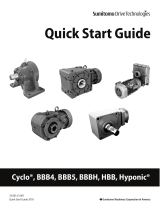 Sumitomo Cyclo BBB4 Quick start guide
Sumitomo Cyclo BBB4 Quick start guide
-
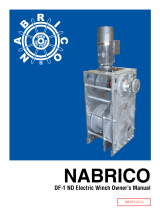 Nabrico DF-1-100 Owner's manual
Nabrico DF-1-100 Owner's manual
-
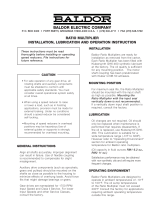 Baldor-Reliance Ratio Multiplier Owner's manual
Baldor-Reliance Ratio Multiplier Owner's manual
-
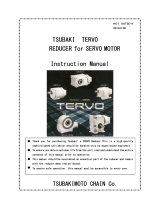 Tsubaki Gear Reducer User manual
Tsubaki Gear Reducer User manual
-
Chrysler Dodge Monaco 1966 User manual
-
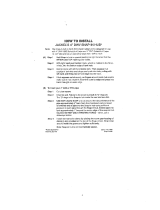 Jackel SIH-4 Installation guide
Jackel SIH-4 Installation guide












